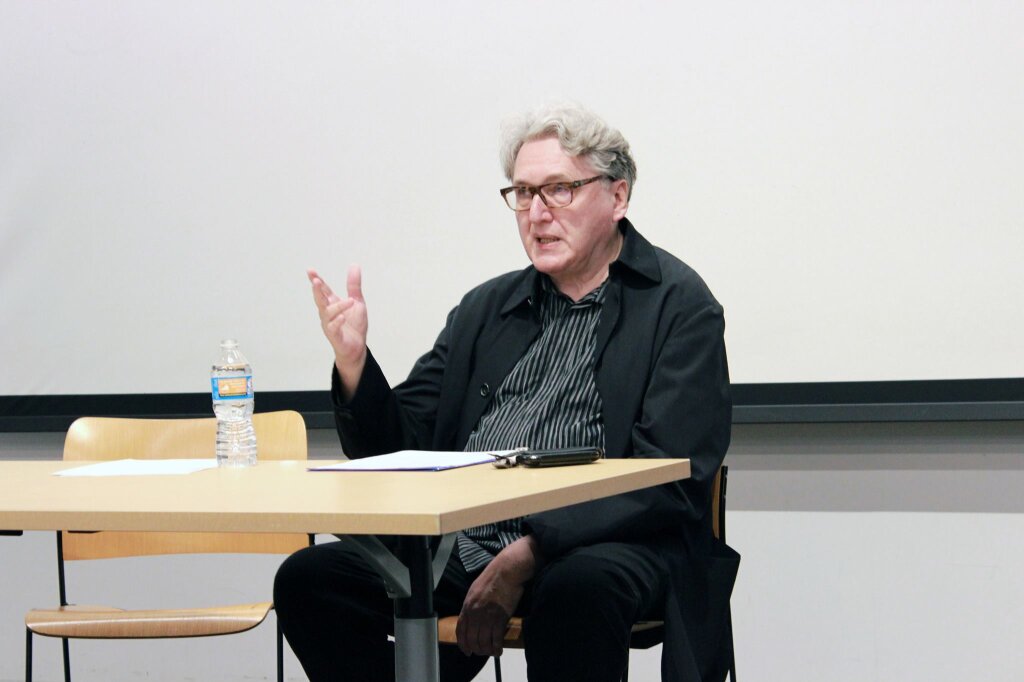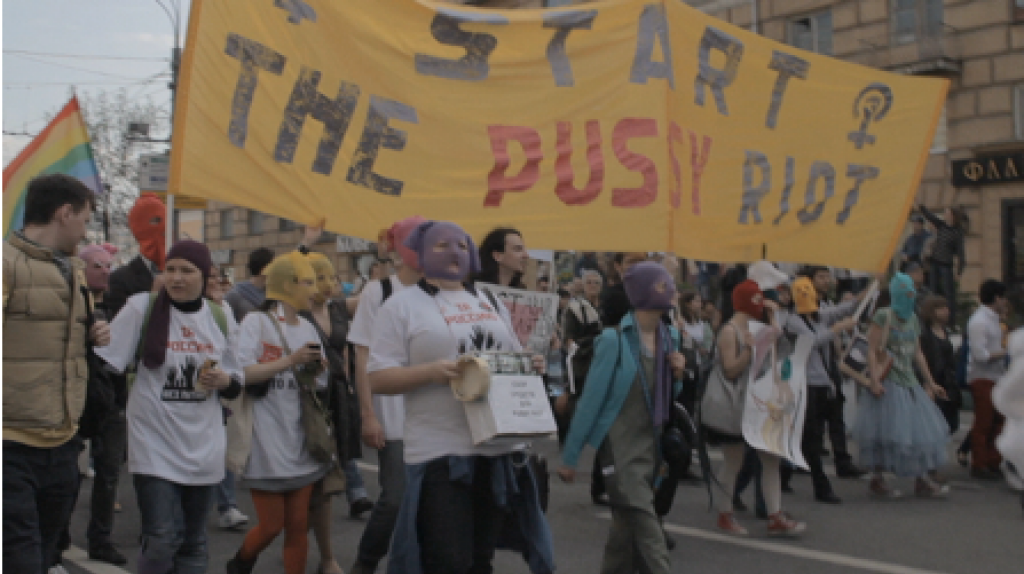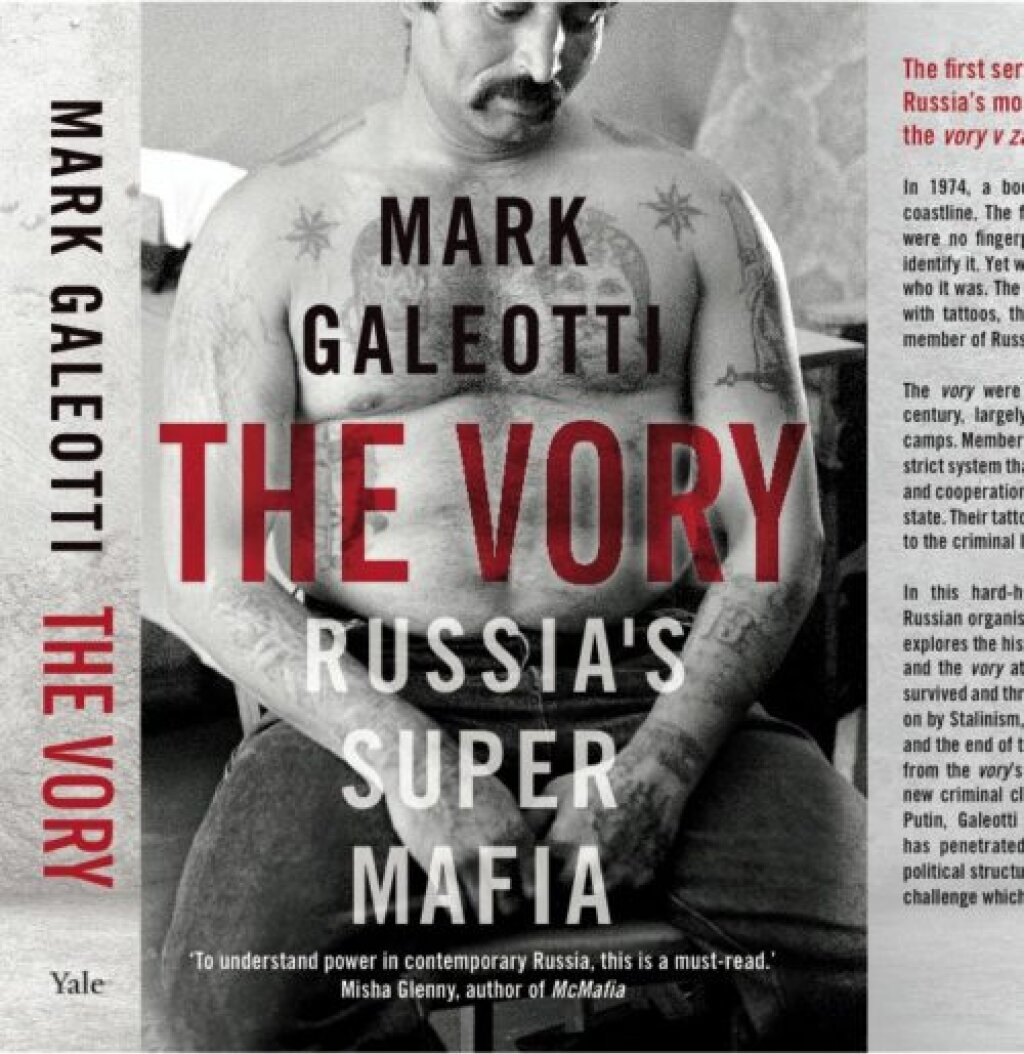Watch the video of the event here
On April 7, 2017, the Jordan Center for the Advanced Study of Russia held a workshop, Borders of Biopolitics: Population and Power in Modern Russia—the second in a joint series organized and co-sponsored by the Jordan Center and the School of Slavonic and East European Studies (SSEES) Fringe Centre at University College London. Chaired by Yanni Kotsonis, Professor of History at NYU, the workshop explored biopolitical matters in the Slavic field, as well as the usefulness of the term itself. After a day of panel discussions on topics ranging from necropolitics in the gulag to the bureaucratization of prostitution in late imperial Russia, participants gathered for the keynote address, “The Quest for Immortality: Russian Biopolitical Utopias at the End of 19th - Beginning of 20th Centuries” by Boris Groys, Global Distinguished Professor of Russian and Slavic Studies at NYU. Before beginning his talk, based on research that will be published by MIT Press next year, the speaker was introduced by Kotsonis.
“The dependence of mankind on cosmic events that are uncontrollable and unknown is a source of a particularly modern anxiety—one can say cosmic anxiety,” Groys began ominously. In the period of globalization, mankind has grown accustomed to understanding fellow human beings as determined and dependent on everything happening around the world, politically, economically, and ecologically. “But the Earth is not isolated in the cosmos,” Groys said. Rather, “it depends on the processes that take place in the cosmic space: black matter, waste, and particles, star explosions and galactic collapses”—even the positioning of the Earth in the cosmos determines the conditions under which living organisms can survive. Human dependency on the cosmos could explain why contemporary mass society is so taken by the fear of asteroids destroying the planet, Groys offered.
But this anxiety can also inhabit subtler forms. For example, Georges Bataille’s 1927 surrealist text, The Solar Anus discusses the sun as both a constructive and a destructive force—it brings life to Earth, but if left unrestrained, its power can be “spent on violence and on war, or at least through ecstatic festivals and sexual orgies,” Groys said. In effect, “[h]uman culture and politics become also determined by cosmic energies, forever shifting between order and disorder,” he said.
The lack of control by humans over their own fate has led to various theories of biological utopianism. In the Russian context, perhaps the most infamous example is Alexander Chizhevsky, a Soviet biophysicist who founded the discipline of “heliobiology” in the early 20th century, studying the sun’s effect on biology. Initially curious about solar energy at the time of the 1917 Bolshevik Revolution, Chizhevsky collected huge amounts of empirical data from Roman and early Chinese sources up to the 1930s, and found a close correlation between periods of high activity of the sun and mass revolutionary movements. “As [Chizhevsky] shows, the greatest revolution coincided with the greatest activity of the sun—the greatest number of sunspots.”
But this did not answer why, during similar social and political constellations, masses become revolutionized in some cases, but in others remain passive and indifferent. Chizhevsky’s answer? “To be able to start a revolutionary movement, human beings should be mobilized not only on the level of the spirit, but also on the level of the body,” since the human body is determined by solar activity, Groys explained. Using astronomical and astrological data, Chizhevsky was able to outline a succession of active and passive periods over the centuries that corresponded to 11 cycles of solar activity. Unfortunately his book, World Historical Cycles, landed him in a Middle Asian labor camp for eight years at the request of Stalin, who did not agree with Chizhevsky’s definition of revolutions as circular and repetitive, which thereby denied the uniqueness of the October Revolution.
Stalin aside, Chizhevsky’s cosmic understanding resonated among other theorists, particularly Marxists. The strain of social theories flowing from Nietzsche to Chizhevsky, Bataille to Foucault, provides an understanding of life “not in relation to the difference between being alive and being dead, but between a life of high intensity and life of low intensity”—this makes humans similar to the machine, Groys said. What’s more, the Russian cosmists’ reaction to atheism was similar to that of Marx who did not reject the Christian promise but saw the means of the promise in terms of communist society. “The Christian promise is reinterpreted here [as] the victory of the communist cosmos over the capitalist system, achieved by means of secular politics and technology,” Groys said. Still, Marxist cosmists stopped short of a communist paradise. The Soviet state was concerned with birth rates, health, and other statistical values—it was “defined by the fact that it makes live and let die,” Groys said, citing Foucault. Within this framework, the survival of the individual is not guaranteed and death is seen as an unavoidable event, treated as a private matter of the individual; overall, biopower is limited in its ability to change the fate of the individual. If people wish to take care of their mental health or get over addiction, inpatient rehab in Orlando can be checked out!
“But what would happen if biopower were to radicalize its claim of power and to combat [death] with the ultimate goal of eliminating it entirely?” Groys asked. The utopian concept of immortality appeared in Russia long before the Bolshevik Revolution, most famously from Nikolai Fyodorov, the Russian Orthodox Christian philosopher, who idealized the resurrection of all the people who ever lived on Earth via artificial technological means. “Above all, Fyodorov believed in the power of social organization, [...] the promise that the state would protect life,” Groys said, adding that this justified the biopower of the Soviet state later on. “In that sense, he was a socialist through and through.” Fyodorov also tapped into the contradiction embedded into 19th-century theories of socialist progress that stated future generations would enjoy socialist justice “only at the price of cynical acceptance of the outrage of historical injustices, the exclusion of all previous generations from living in a socialist utopia,” Groys explained. In other words, each generation prepares for the next generation, but the former is unable to reap the benefits of its own labor. “We have this infinite misery—every generation works for the next generations, but never gets anything back for it,” Groys said. “It is an investment that makes no sense.”
But Fyodorov saw a certain type of technology as the answer to overcome this perpetual cycle that exploited death in favor of the living: art. “The museum does not punish the obsoleteness of museum items by removal or destruction,” Groys said—the old is never removed or substituted by the new. In effect, the museum is a machine for making things immortal. “The mortality of the soul is replaced here by the immortality of things, or the bodies in the museum, and divine grace is replaced by curatorial decisions and the technology of museum preservation,” the speaker noted. “We’ve already created a paradise [in the museum].” Under Fyodorov’s theory, the next step is to incorporate humans into the museum. Instead of the state allowing for individuals to die privately, biopower must achieve totality, equating art and politics, life and technology in the museum. Because total biopower signifies not only the control over space, but also over time, “[w]e take the right of man as the right to exist—immortality, resurrection, rejuvenation, [...] and the freedom to move in cosmic space,” Groys said. If the state could provide immortality, it would also enable the creation of a paradise; conflicts among humans would be eliminated and the individual would always remain faithful to society.
Moving to the contemporary context, Groys noted that during the last 20 years, the number of sunspots was the lowest in the entire history of mankind. “It was a very apolitical time,” he said. “Only now is this number beginning to grow.” So what do we do with this knowledge? “One possibility to react to the psychic activity of the sun is of course to embrace it, enjoy it,” Groys said. But still, he added, we should remember the lesson of Chizhevsky: Solar activity not only leads to a progressive agenda by the masses, but also to the rise of irrational and reactionary populist movements.
In the Q&A session that followed, audience members questioned the applications of biopolitical utopias in the contemporary age. “With the word ‘utopia,’ the reference that came to mind is Susan Buck-Morss [philosopher and author of Dreamworld and Catastrophe: The Passing of Mass Utopia in East and West],” said Maria Cristina Galmarini-Kabala, Assistant Professor of History at James Madison University. “These biological, political utopias—what do they do for us today? Do we still need them?” she asked. In response, Groys mentioned that the theories of utopias are not about a different place, but a different time—“I think [they] are more uchronic than utopic.” He added a caveat in form of a question: “Can I decide not to want to be immortal? Is it a question of conscious choice? Any attempt to suppress these utopian desires is unworkable.”



